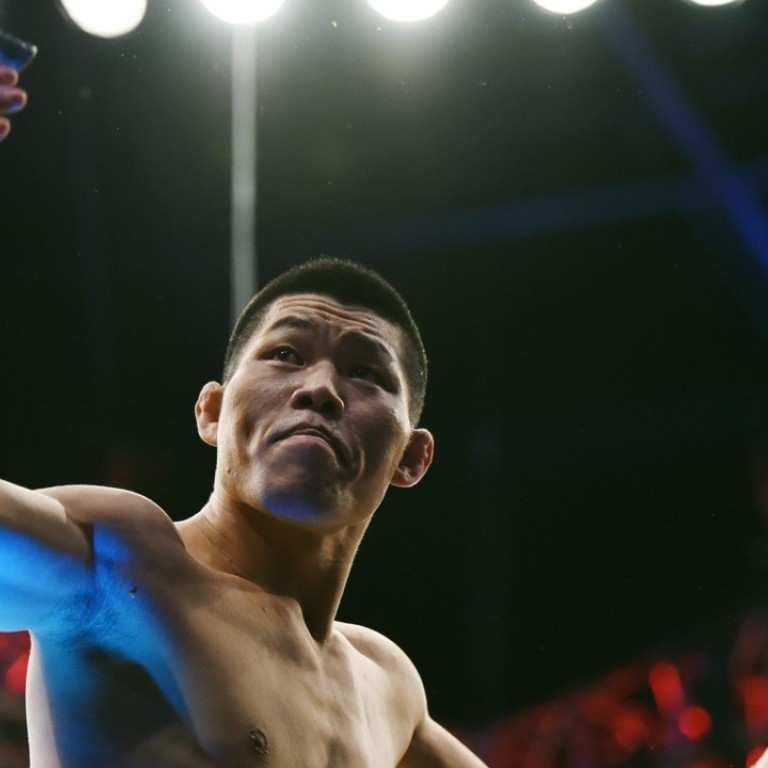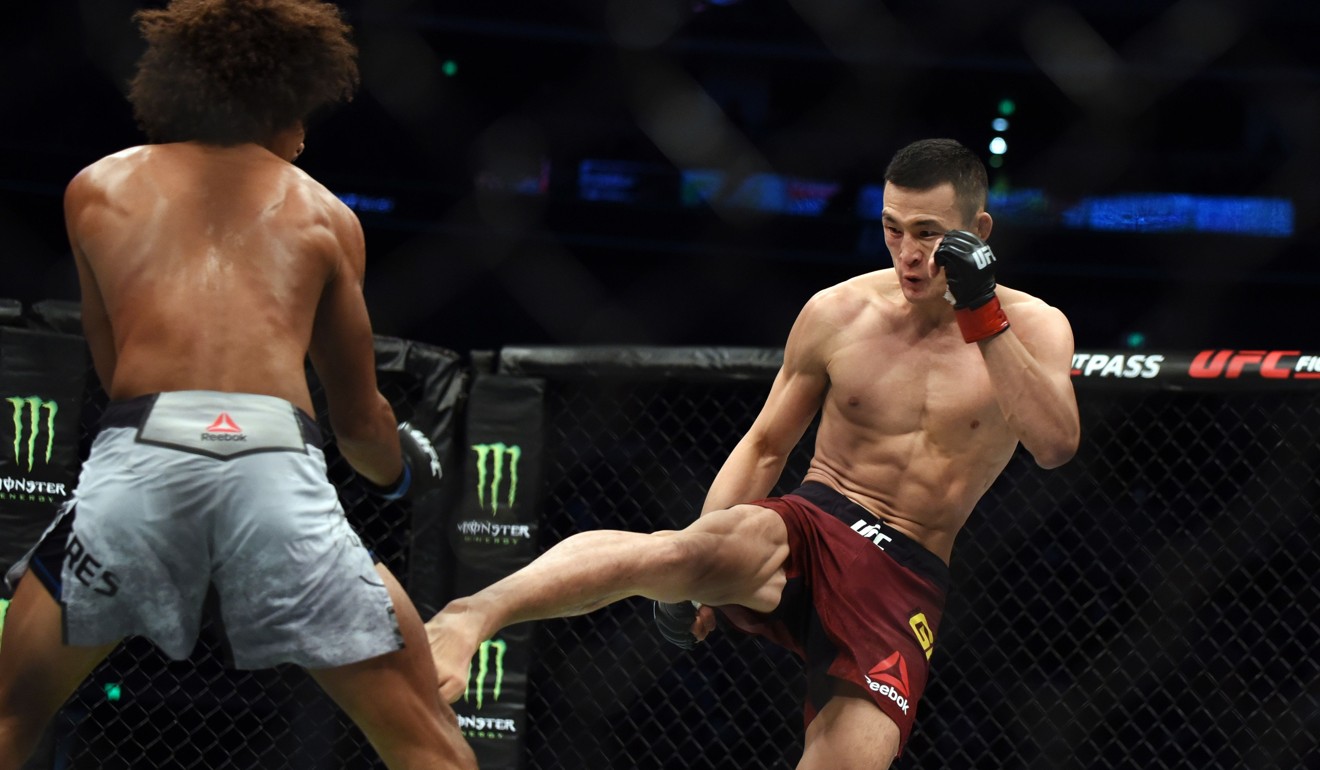
Chinese fighters on Song for global MMA challenge as more mainland events loom in 2018
Regional promoters prepare to expand their reach across China as domestic fighters make world take notice following UFC’s debut in Shanghai
November 25, 2017 was when Chinese mixed martial arts formally introduced itself to the world – and Song Yadong has been dining out on the memory ever since.
As did Song.
Called up to the card on less than two weeks’ notice – and at just 19 years of age – “The Terminator” (10-3) simply overpowered Indian featherweight opponent Bharat Kandare (5-3) before laying down a guillotine choke in the last minute of their first round. It was an impressive display of potential and a statement of intent from a fighter who had tested the waters with no fewer than six regional MMA outfits since making his professional debut back in 2013 as a fresh-faced 16-year-old.
“When the offer came I knew I just had to grab it,” says Song. “This was the biggest night for MMA in China and the biggest night of my life. When I was starting I just wanted to take on any fight that was offered to me. Getting to the UFC was always my goal and I thought that the more fights I had, the closer I would come.
“I never thought I would get to the Octagon so quickly but taking on all those fights with all those different organisations helped me get there.”
Song’s victory on the night also – importantly – arrested an 0-3 slide for local fighters. By night’s end, China’s record had improved to 5-3 and delirious local fans had toasted victories for the likes of welterweight Li “The Leech” Jingliang (14-4) and featherweight Wang “The Dongbei Tiger” Guan (17-1-1).
“During my warm-ups I started to get nervous,” says Song. “The three Chinese fighters before me had lost so I felt a little bit of pressure. But once I walked out and saw the crowd, I felt transformed. I was more excited than nervous and once I walked into the Octagon I was fully focused on my opponent. I knew I had to perform well for the fans – and for my family.”
The feeling in the aftermath was that Shanghai was only just the beginning. Though 2018 dates have yet been set, there is little doubt the UFC will return to mainland China soon – and to Asia following the successes in 2017 of cards in Singapore in June and Tokyo in September.
Major regional organisations are also planning to extend their reach across the nation.

Closer to home, domestic groups such as Kunlun Fight are continuing to expand and the Hong Kong-based Just MMA are also getting in on the act, with a card set down for Guangzhou in April.
As the UFC’s Shanghai card showed, the raw talent is out there – and it’s beginning to be harnessed, in global terms.
One have Xiong “The Panda” Jingnan (10-1) down to contest for their inaugural women’s world strawweight title against Singapore’s Tiffany “No Chill” Teo (7-0) in Jakarta on January 20. Meanwhile, Li – emboldened by his fourth straight win in the UFC – has since November been calling out Kim “Stun Gun” Donghyun (22-4-1) on social media, saying he wants to knock the South Korean veteran off his perch as “the first in Asia” and he charts a course towards a title shot himself.
Song wants in on the party, after collecting the victory in Shanghai and a healthy cash bonus of US$50,000 for producing one of the fights of the night.
“I’ve watched the replay over and over again because to me it was all like a dream,” says Song. “I was a substitute for my teammate and had less than two weeks to prepare for the fight so it all happened so fast. Usually I need one month or even two to have a fight camp and prepare. But to get the fight, finish the fight, win and get the bonus was just like a dream. It still just doesn’t feel like it was real.
“[The bonus] feels like a big fortune to me and I am going to use it well. I still need to improve a lot before my next fight and I want to go to the US for a fight camp to prepare me well for the next one. I want to fight as many times as I can. I feel like this is just the beginning.”

